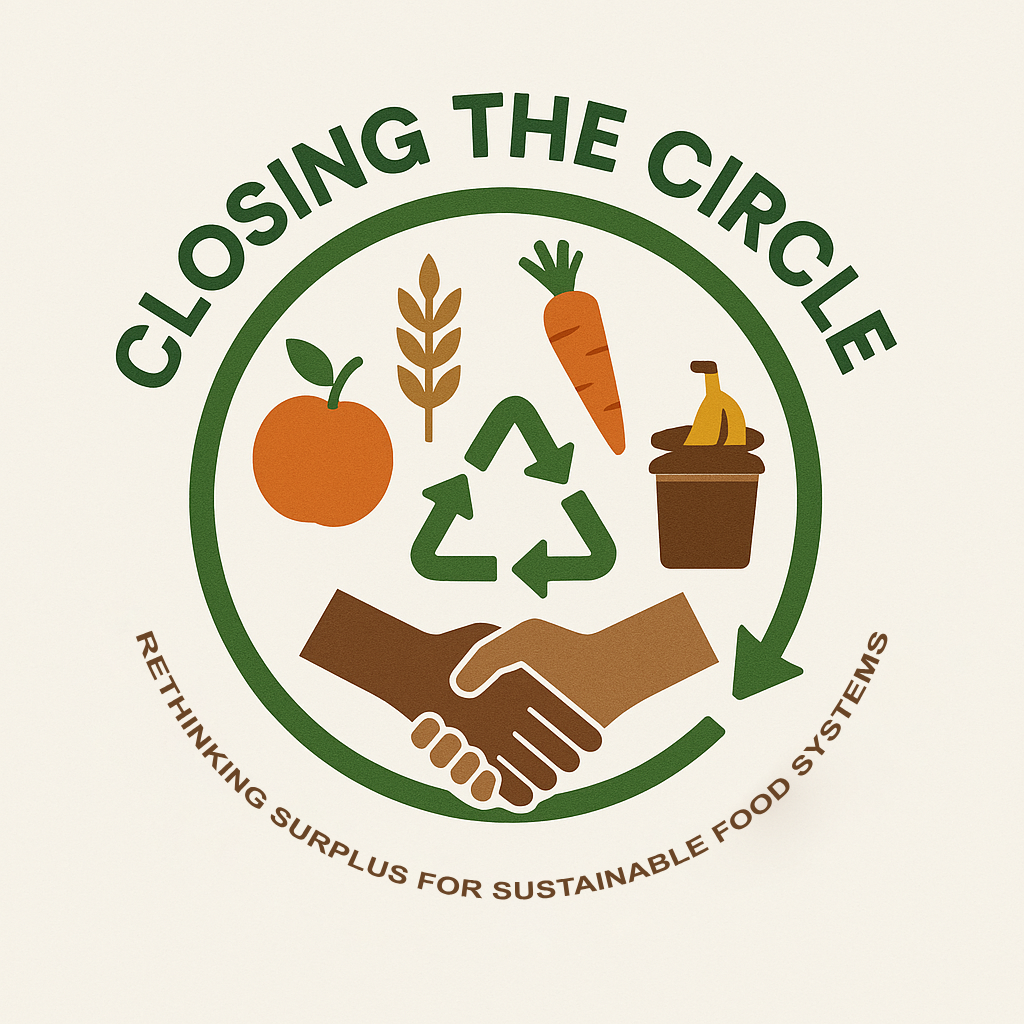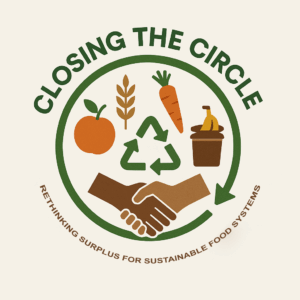Interview with Closing the Circle 2025 speaker Erica Lee, MPH, RD – Deputy Director for the UCLA Rothman Family Institute for Food Studies
Questions in the Closing the Circle 2025 conference speaker interview series written by Elias Jabbe
How has your experience as a community-focused registered dietitian partnering with community gardens prior to joining UCLA influenced your efforts to create knowledge of healthy eating habits through programming led by your institute and the UCLA Semel Institute Healthy Campus Initiative Center as a whole?
My prior experience as a registered dietitian has partially inspired my decision to mostly try to encourage programming that helps people think about food from differing perspectives and to think about the food system as a whole. I think that healthy eating habits are incredibly important and one of the ways that we can encourage or create better spaces for healthful eating habits would be to change the environment.
That takes a really long time and also requires us to change the culture, which also takes a really long time. I think changing our food culture could result in a change in what foods are available most easily, a change in what’s served in schools, as well as a change in what certain food landscapes look like in different areas of cities in both suburban areas and rural areas.
So my usual focus with programming is to kind of turn on that light bulb to help people think critically about that. Even if people are already thinking critically to contribute to the thoughts that they’re already having, I hope that this programming ignites people to want to have deep conversations about potentially changing the culture, the environment or something else that is related to this topic. That change hopefully will lead to more healthful eating practices.
What are some success stories that your institute has been a catalyst of in areas such as systems change through your funding of UCLA students taking part in fellowships and your community-building programming such as documentary screenings and panel interviews hosted on campus with local agriculture leaders and culinary champions?
I would say our success stories have mostly been being able to partner with incredible organizations at UCLA and in Los Angeles communities. Hopefully these partnerships can continue to lead to steps in a culture change. Again, culture change is so massive. So a shift in the culture change could literally be a very tiny step or even a whisper. One of the ways that we’re doing this is we’re building a community around food waste at UCLA and with both the Los Angeles Food Policy Council and FoodCycle LA. It’s really in response to SB 1383 (California Senate Bill 1383) and it is enforcement of what has been happening recently in regards to local policy. So it’s really exciting to be able to work with these partners and I think that it’s a success story in and of itself.
I believe that just being able to have the opportunity to bring people together and put all of this programming in one place is important. It allows us to connect with people who are part of our Listserv and have them come to our events where they realize these things are intertwined and the food system is not separated in silos. When you talk about food waste, you also talk about urban agriculture and nutrition education. And when you talk about nutrition education you’re also talking about food law and food policy.
How are you and your fellow institute leadership team members leveraging your collective international experiences to support global student research revolving around the slow food movement via your Atlantic Foodways program with the Food and Agriculture Organization of the United Nations following on-campus culinary education led by the UCLA Semel Institute Healthy Campus Initiative Center nurturing the ‘whole student’ that has been recognized by the National Academies of Sciences, Engineering, and Medicine?
The last program we had was the Atlantic Foodways: Culture, Science, Governance program held across Italy in Rome and Pisa. Following that travel grant program we have had professors who are interested in doing more work internationally. Since that Atlantic Foodways program, we’ve been mostly focused domestically when it comes to programs for students.
Our inaugural executive director Jack Bobo has been doing some work traveling internationally to increase our thought leadership and we hope to definitely support more of this in the future. However, for right now we’re mostly focused on domestic work.
View this post on Instagram
Visit closingthecircle2025.com and click the logo above to learn more about attending Closing the Circle 2025 on October 17 at UCLA and upcoming interviews with conference speakers conducted by Elias Jabbe


Leave a Reply